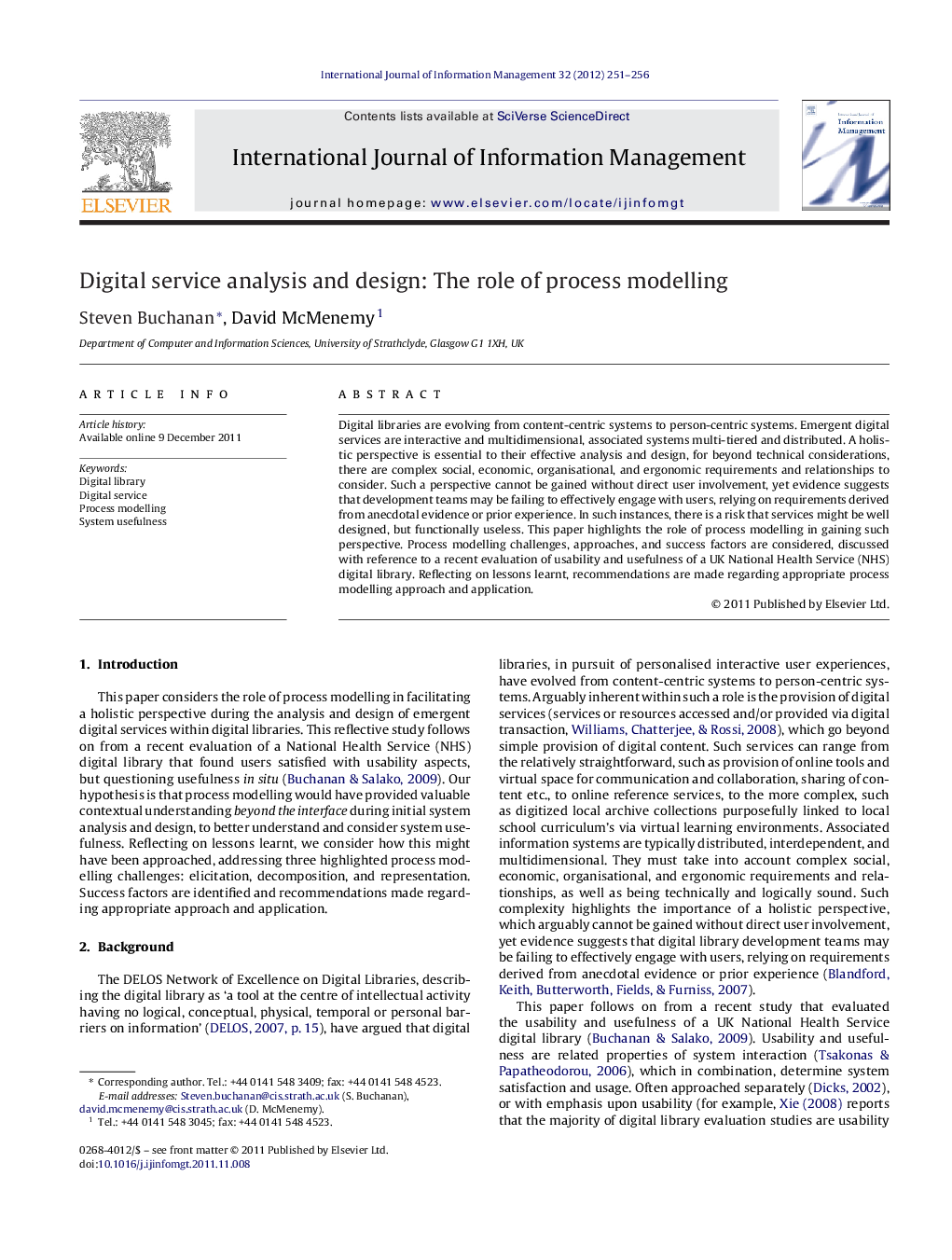| Article ID | Journal | Published Year | Pages | File Type |
|---|---|---|---|---|
| 1025989 | International Journal of Information Management | 2012 | 6 Pages |
Digital libraries are evolving from content-centric systems to person-centric systems. Emergent digital services are interactive and multidimensional, associated systems multi-tiered and distributed. A holistic perspective is essential to their effective analysis and design, for beyond technical considerations, there are complex social, economic, organisational, and ergonomic requirements and relationships to consider. Such a perspective cannot be gained without direct user involvement, yet evidence suggests that development teams may be failing to effectively engage with users, relying on requirements derived from anecdotal evidence or prior experience. In such instances, there is a risk that services might be well designed, but functionally useless. This paper highlights the role of process modelling in gaining such perspective. Process modelling challenges, approaches, and success factors are considered, discussed with reference to a recent evaluation of usability and usefulness of a UK National Health Service (NHS) digital library. Reflecting on lessons learnt, recommendations are made regarding appropriate process modelling approach and application.
► Highlights importance of contextual understanding during digital library service analysis and design, and the facilitative role of process modelling. ► Addresses process modelling challenges of elicitation, decomposition, and representation. ► Reflects on current practice based on a recent case study. ► Recommends a framework-based approach to process modelling.
